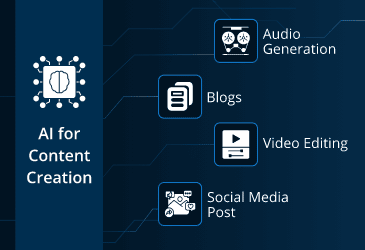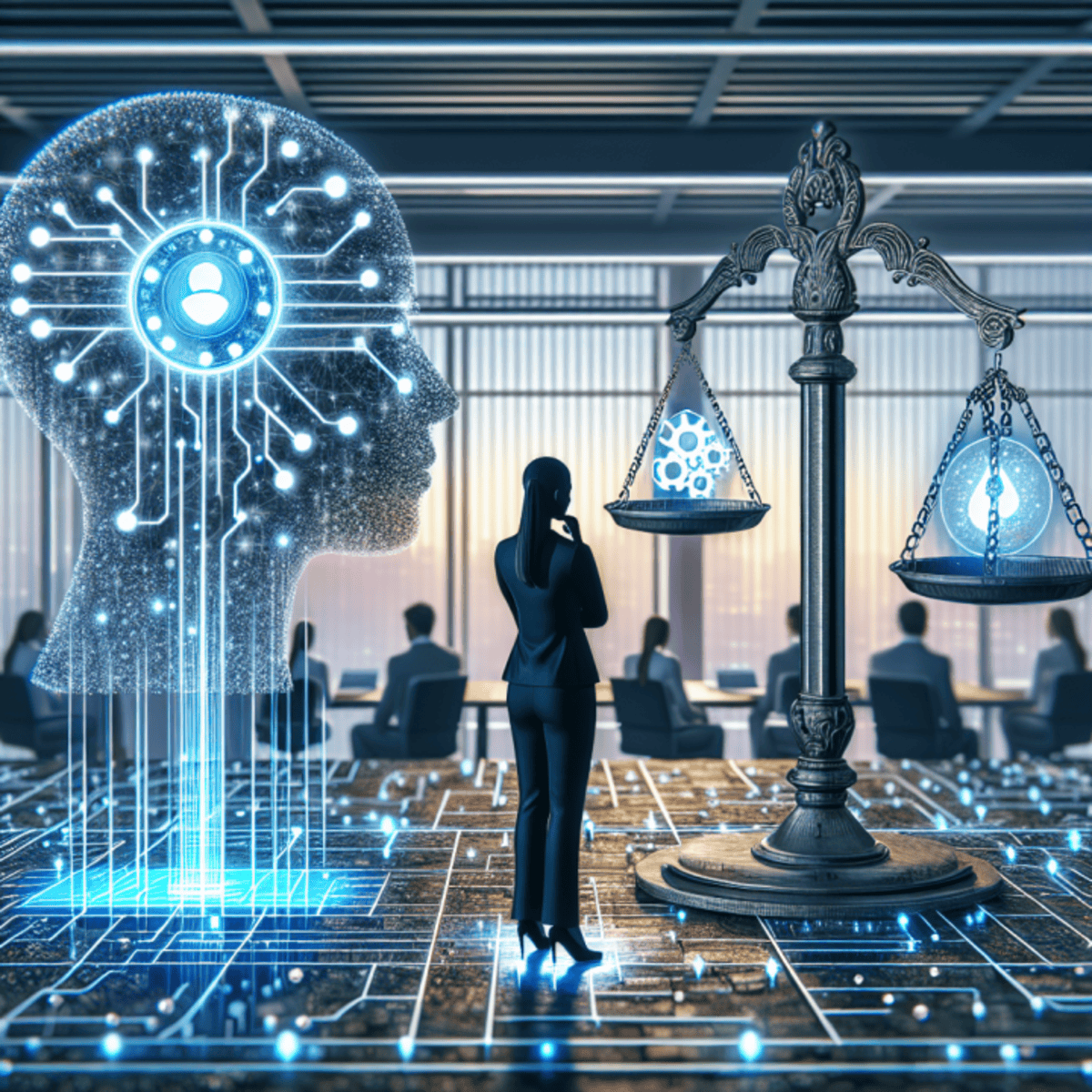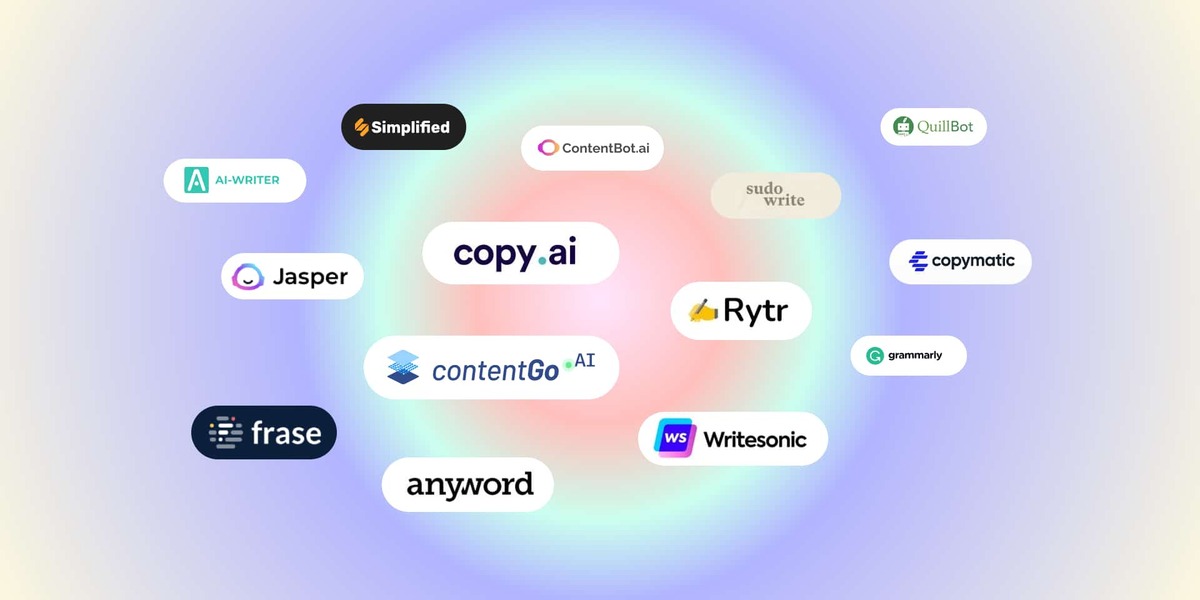Content creation is central to digital marketing and SEO. It helps build brand authority, engage audiences, and drive organic traffic. However, the demands for high-quality, relevant, consistent content can overwhelm businesses. With artificial intelligence (AI) advancements, many are turning to AI-driven content solutions to streamline their content production processes and enhance their SEO strategies. But the question remains: Should you use AI for content creation?
The Role of AI in Digital Marketing
AI has transformed many aspects of digital marketing, from personalized email campaigns to predictive analytics. Now, AI is reshaping content marketing by enabling businesses to create, optimize, and distribute content more efficiently. What started with simple automation tools, such as chatbots and automated emails, has evolved into sophisticated AI-powered platforms capable of generating entire articles, social media posts, and even video scripts.
How Does AI for Content Creation Work?
At the core of AI-driven content creation are technologies like natural language processing (NLP), machine learning (ML), and natural language generation (NLG). Let’s break down how these technologies contribute to content creation:

- Natural Language Processing (NLP): NLP enables AI to understand, interpret, and process human language. It helps AI identify relevant topics, analyze search queries, and comprehend the context behind a user’s intent. With NLP, AI tools can recommend keywords and phrases that align with the user’s search behavior, enhancing SEO optimization.
- Machine Learning (ML): ML allows AI systems to improve their content generation capabilities over time by learning from new data. It can analyze content performance, user engagement metrics, and other datasets to identify patterns and make recommendations for optimizing future content.
- Natural Language Generation (NLG): NLG enables AI to produce human-like text by converting structured data into natural language. It generates written content, such as articles, summaries, product descriptions, and social media posts. By using NLG, businesses can automate content creation while maintaining a conversational and engaging tone.
Why Businesses Are Embracing AI for Content Creation
- Demand for Consistent Content Output: In today’s digital landscape, businesses must publish content frequently to maintain visibility. AI-driven tools can help meet this demand by generating content quickly and at scale.
- Data-Driven Content Strategies: AI’s ability to analyze vast amounts of data allows marketers to create content strategies based on user behavior, keyword trends, and performance metrics. This data-driven approach ensures that content aligns with audience preferences and SEO requirements.
- Time and Cost Efficiency: Content creation can be resource-intensive, requiring time for research, writing, editing, and optimization. AI helps automate these processes, reducing costs associated with hiring writers and editors while speeding up content production.
- SEO Optimization: AI tools can optimize content for search engines by suggesting keywords, analyzing competitors, and structuring content for better readability. These tools help improve a website’s visibility on search engine results pages (SERPs).
The Benefits of Using AI for Content Creation


AI tools offer comprehensive SEO optimization features. They suggest relevant keywords, provide insights on keyword density, and recommend the optimal length for content pieces. Additionally, AI can evaluate the competition’s content to suggest ways to outperform them through content depth, keyword use, or backlink strategies.
The Drawbacks and Limitations of AI for Content Creation
Ethical Considerations When Using AI for Content Creation
As AI evolves, ethical concerns in content marketing have become more prominent. Here are some critical moral issues to keep in mind:

- Disclosure of AI Use: Transparency is crucial in building trust with audiences. If a significant portion of the content is AI-generated, it may be ethical to disclose this to readers. For example, companies could include a note at the end of the article stating that AI-assisted tools were used in content creation.
- Plagiarism and Originality: AI generates content based on existing data, which can lead to unintentional plagiarism. To avoid ethical violations, it is important to ensure that the content is unique, properly cited, and reviewed by human editors.
- Data Privacy: AI tools that analyze user data to personalize content must comply with data privacy laws, such as the General Data Protection Regulation (GDPR). Businesses should be transparent about collecting and using user data in AI content strategies.
Popular AI Tools for Content Creation
Here are some AI-powered tools that can help streamline content creation and SEO efforts:

- Copy.ai: Designed for marketers, Copy.ai generates high-quality marketing copy, including product descriptions, social media captions, and ad copy. It is known for its intuitive interface and ease of use.
- Frase: Frase is an AI tool that assists in content creation by suggesting topics, keywords, and content outlines. It integrates SEO optimization with content generation, making it suitable for marketers prioritizing search engine visibility.
- Jasper (formerly Jarvis): Jarvis is famous for its ability to create blog posts, articles, and marketing copy. It offers different content templates, such as social media ads, emails, and long-form content, making it versatile for various use cases.
- INK Editor: INK uses AI to help with content writing, SEO, and grammar checking. It provides recommendations for improving content quality and SEO performance.
- Grammarly: Known primarily for grammar and style checking, Grammarly also offers AI-driven suggestions for clarity, engagement, and tone adjustments to improve the quality of content.
- Wordtune: Wordtune is an AI-based writing assistant that helps users rephrase and rewrite content to improve clarity and flow. It’s beneficial for making complex ideas more accessible.
Industry-Specific Applications of AI in Content Creation
Case Study: The Use of AI in Enhancing SEO for an E-commerce Store
- Challenge: The retailer’s content production could have been faster, affecting their ability to rank for relevant keywords. Additionally, they struggled with high bounce rates due to poorly written product descriptions.
- Solution: They implemented AI-driven tools to automate the generation of SEO-optimized product descriptions and category pages. The AI tool analyzed competitors and suggested ways to improve content for better search engine visibility.
- Outcome: Within eight months, the company experienced a 40% increase in organic traffic and saw a 25% improvement in conversion rates. AI allowed them to scale content production while reducing content-related costs by 50%.
Future Trends: What to Expect from AI in Content Marketing
As AI technology continues to evolve, here are some emerging trends to watch:

- Voice Search and Conversational AI: With the rise of voice-activated devices, optimizing content for voice search will become more critical. AI can help create content that answers voice search queries in a natural, conversational tone.
- Hyper-Personalization: AI will continue to push the boundaries of personalization, delivering tailored content experiences based on real-time user data. This trend will make content more relevant and engaging for individual users.
- AI-Generated Video and Multimedia Content: AI tools can now create text and videos, infographics, and other multimedia elements. These capabilities will allow businesses to diversify content formats and reach different audience preferences.
- Predictive Content Analytics: AI will help predict which content topics are likely to trend, enabling businesses to produce relevant content ahead of time. Predictive analytics will be more significant in content strategy, making marketing efforts more proactive than reactive.
Conclusion
AI for content creation offers significant efficiency, scalability, and SEO optimization advantages. However, it has its limitations. Businesses must carefully balance AI-generated content with human creativity and ethical considerations. By leveraging AI technologies while maintaining a human touch, companies can enhance their content marketing efforts and achieve better results.

Call to Action
Contact Excell today to book a free discovery call and how our digital marketing expertise can elevate your content strategy and grow your business!
Contact us:





